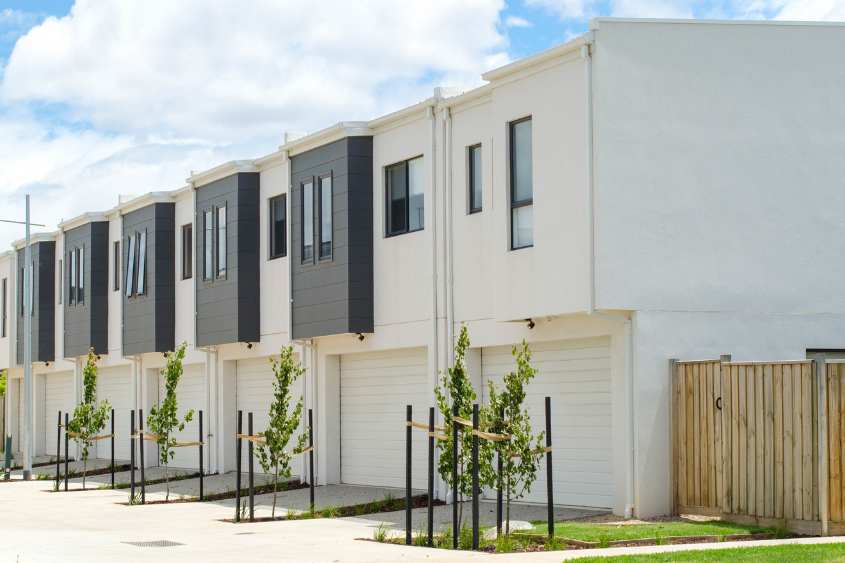-
What are levies?
-
Common levy myths
-
How are levies calculated?
-
Where do your levies go?
-
What are special levies?
-
Paying your levies
-
Why are levies increasing?
-
Levy comparisons
Body corporate contributions, generally called levies, are the payments made by all lot owners towards the operation of the body corporate.
Similar to a tax they are a compulsory part of ownership in a body corporate, and are collected to pay for the maintenance and operating costs of the development. The body corporate relies on levies to fund all of its operations.
It can be helpful to think of levies as a large number of smaller individual costs, bundled together into one convenient payment. That is how levies are calculated and spent. Refer to the pie chart for a typical example of which costs make up body corporate levies.
What are body corporate levies?
Body Corporate Fees, Levies and Budgets – Your Complete Guide
Levies may appear as a simple quarterly amount, but this simplicity can lead to incorrect assumptions. Here are the top 4 misunderstandings about levies.
The levies are the body corporate manager’s fee
The body corporate levies do not pay the body corporate manager. Body corporate levies go, in full, into a business bank account in the name of your building to pay for all of the body corporate expenses.
Spending is controlled by your body corporate committee.
Your body corporate manager is engaged to issue levy notices, so owners do often interact with us about these. We do not however set the levies or get the money.
Increasing levies is a sign of greed or poor management
Levies are simply a collection of funds, in advance, to pay for shared expenses. The higher the expenses, the more money required from owners in the form of levies.
Expenses usually don’t rise because of greed or poor management. For most buildings, most of the time, costs rise because of increases in labour and materials, unexpected damage or repairs, insurance premiums, and the cost of electricity and water.
Just like in your household budget, if your health insurance or fuel costs rise, you need to adjust your budget accordingly.
Smaller complex mean smaller levies
Many owners buy into smaller developments expecting levies to be lower. Of course, depending in its features, the total funds required to maintain a small complex is usually less than a larger one, but the amount per owner may not be lower.
Think about individual costs. A swimming pool will generally cost a similar amount to maintain whether it’s in a private house backyard, shared between 5 townhouses, or shared between 20 townhouses. Even as chemical costs rise with more people swimming, the larger development produces a cheaper pool cost per townhouse.
Just like a restaurant bill, if you go out with a smaller group of friends the total bill may be lower, but per head it might still be the same cost as a larger group.
Sinking fund levies should not increase for newer developments
Just like a new car that starts to depreciate the moment you drive it out of the dealership, buildings start to age and deteriorate from the moment they are completed.
A sinking fund levy isn’t to pay for repairs required right now, it is saving up for repairs that are inevitable in the future. In your own home you may choose not to save up for future repairs gradually and just deal with costs as they come up, but in a body corporate that long-term gradual savings plan is mandatory.
Sinking fund reports also factor inflation into the levies, therefore they typically increase with inflation each year. This way the body corporate can keep up-to-date with the market costs.
If the body corporate does any unplanned improvements, upgrades or repairs, this will create a gap in the savings plan, and typically increase the levies for the following year to catch up.
Common corrections about body corporate levies
The levies are set each year at the AGM, by a majority vote of all owners.
Setting the levies is relatively simple:
- The committee and the body corporate manager work together to prepare a budget for the year’s expected operational costs
- The budget takes into account whether last year’s costs were over or under budget
- The budget is then divided by the total number of lot entitlements
- This shows the amount required for the year to pay for the body corporate’s operational costs.
There is no profit margin on levies. If your body corporate comes in under budget, the saving is rolled forward to offset next year’s levies.
If your body corporate goes over budget, then the difference must be picked up in next year’s levies.
How your individual levy amount is calculated
When should the sinking fund forecast be reviewed
How levies are set
Body Corporate Fees, Levies and Budgets – Your Complete Guide
Body Corporate Budgeting
Sinking funds and administrative funds explained
The body corporate levies are paid to the body corporate. All body corporate funds are kept in a separate bank account in the name of your body corporate and these funds are under the control of your body corporate committee members.
There is a myth that the body corporate manager receives the levies, however that is not the case. Your body corporate manager works for the committee to issue the invoices and assist with enquiries, but does not receive the body corporate levies.
Sinking funds and administrative funds explained
Rising building costs and sinking fund levies
Special levies are contributions that owners pay on top of their normal levies. They are required when unexpected spending, not allowed for in the budget, must be covered.
For example, if the body corporate has an unforseen building repair, a special levy may be required to fund that work.
Special levies can be used in conjunction with body corporate loans to allow the body corporate to pay for expensive work which cannot be covered using its normal funds.
What are body corporate special levies?
Body Corporate Fees, Levies and Budgets – Your Complete Guide
When and how do I pay my levies?
The payment details are shown on each levy notice.
Are there simple payment options?
Lot owners can also set up a direct debit arrangement directly with the body corporate to avoid missing payments.
What happens if I don’t pay my levies on time?
If the body corporate is unable to recover the levy debt directly, the body corporate must engage a solicitor and commence court proceedings to recover the debt.
The body corporate is not able to write-off, forgive or credit owner levies. Because levies directly pay for the body corporate’s costs, if the committee forgave a levy invoice for one owner, that would increase the levies for all other owners.
Can I see my levy balance online?
How to avoid late fees on your levies
Levy payment plans
Levies provide the cashflow for your body corporate to operate, and allow it to spend on the labour, services and equipment needed to maintain the body corporate development, including any common property, assets and other responsibilities.
At a basic level, as inflation and increased demand cause prices to rise, the body corporate needs to raise more money to deliver the same outcomes each year. A body corporate is a consumer of goods and services just like a household, and is exposed to many of the same cost pressures that affect individuals and businesses.
The below content looks at which cost pressures affect each of the funds.



















